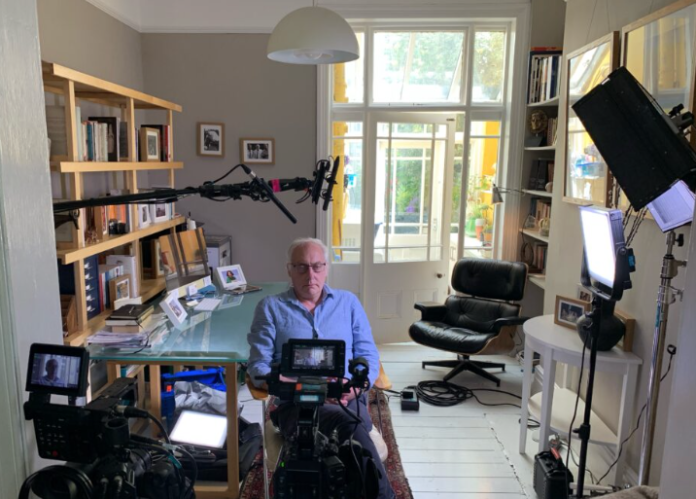- Childish politics - 11th July 2025
- Dead unlucky - 10th July 2025
- Difficult access - 9th July 2025

During 23 years with the BBC, and 40 years in journalism (when he was trained to use clear, simple language, avoiding jargon), our Editor, Welshman Phil Parry, has seen enormous technological changes, with his first stories written on a typewriter, and now alongside the increasing use of Artificial Intelligence (AI) we are witnessing huge moves in social media, with a declining popularity sharing news from traditional sources.
Things are moving so fast that journalists like me just get used to publishing in one sphere, and another one comes along!

When I started in journalism in 1983, on (what was then) the biggest newspaper produced in Wales (the South Wales Echo [SWE]) all copy was written on typewriters, before being placed in a wire basket on the News Editor’s desk.
Then it was computers, then the rise of the internet, and then the growth of social media.
But even that is changing now, and it could have implications for all journalists.
 It appears that social media companies (like Facebook [FB]) are relying less and less on ‘sharing’ posts from traditional news sites and offering ‘news feeds’ (as well as those from politics publications), because they are less and less popular.
It appears that social media companies (like Facebook [FB]) are relying less and less on ‘sharing’ posts from traditional news sites and offering ‘news feeds’ (as well as those from politics publications), because they are less and less popular.
Instead, it seems, users are far more interested in commenting about news they have gathered themselves (whatever the source may be), and firms are responding accordingly.


The U-turn (for such it is) has been sharpest at FB’s holding company, Meta, whose boss Mark Zuckerberg, said 19 years ago that he wanted his newsfeed to be a “perfect personalised newspaper for every person in the world”.
The firm now says that news makes up less than three per cent of what people see on the platform.
Adam Mosseri, who is in charge of Threads, wrote at its launch last year: “Politics and hard news are inevitably going to show up on Threads…but we’re not going to do anything to encourage those verticals”.

A week later he added: “From a platform’s perspective, any incremental engagement or revenue they might drive is not at all worth the scrutiny, negativity (let’s be honest), or integrity risks that come along with them”.
Obviously this is absurd business-speak, but put simply it means they are making less and less money with news from traditional sources, so they are not going to focus on that.

But the squeezing of news has been felt by ALL publishers, some of which had built their business around it.
Even relatively new kids on the block have suffered, as they are seen as part of the ‘traditional’ media now.
Last year BuzzFeed News shut down and Vice News drastically cut back.

Meanwhile campaigns by some publishers to make social media firms pay to share their content have not helped matters.
They have reinforced the view among social media companies that news is more trouble than it is worth.
In Canada for example, which will hold a general election this year or next, FB and Instagram are blocking all news content, in response to a demand by the Government that Meta pay publishers for hosting links to their stories.


Under Elon Musk, who is scathing about what he calls the “legacy media”, X has removed headlines from posted news articles.
All of this could sound a death-knell for papers like the SWE.
Even in the last few years the circulation has plunged, and with the changes underway in social media this decline can only accelerate.

The Echo sells less than 5,000 a day now, yet when I started on it (in 1983) it was over 90,000.
It served the biggest city in Wales (Cardiff), as well as the major South Wales valleys so this was as it should be.
I have had to change constantly to pursue my craft over the last 40 years, and I may have to do so again.

Yet I would like to think that even with the rise of robots and changes in social media, there will always be a role for a journalist like me.
You never know though…
Details of Phil’s astonishing decades-long journalistic career (when change was the order of the day), as he was gripped by the rare and incurable neurological condition Hereditary Spastic Paraplegia (HSP), have been released in an important book ‘A GOOD STORY’. Order it now.

Regrettably publication of another book, however, was refused, because it was to have included names.
Tomorrow – why revelations in the UK media that a major Welsh health authority is using new technology to speed up treatment, have highlighted past controversies involving the board, including being under scrutiny during an investigation into a multi-million pound land deal.








